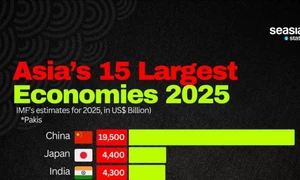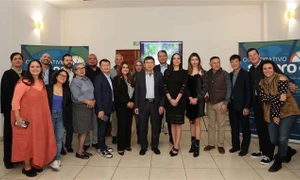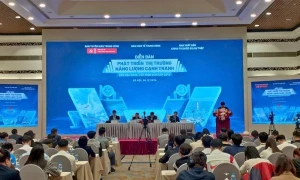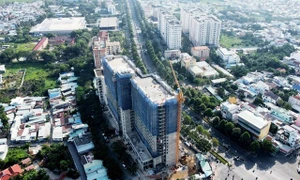
26.7% of people with moderate disabilities and 5.9% of people with severe disabilities are employed
- The World Bank is currently finalizing the report “Disability and Employment in Vietnam: Results of the 2022 Labor Force Survey”. Could you please provide us with the key findings?
- The report was conducted in collaboration with the General Statistics Office (Ministry of Planning and Investment) and with support from the Australian Embassy in Vietnam. From July to December 2022, data on persons with disabilities were collected through the Vietnam Labor Force Survey 2022, which involved interviewing 7,156 persons with disabilities from 117,800 households.
The report's key finding is that people with disabilities (PwD) in Vietnam are less likely to be employed than those without disabilities. Specifically, only 26.7% of people with moderate disabilities and 5.9% of people with severe disabilities are employed, while the employment rate for people without disabilities is 72.5%. Even when employed, persons with disabilities tend to be self-employed and work fewer hours.
Two major labor market barriers reported by persons with disabilities are the lack of assistance in finding a job and the attitudes they face in the workplace. However, the report found that the biggest barrier is the lack of family support. Additionally, young people report a higher rate of encountering workplace barriers.
The dataset indicates that there are still significant gaps in employment for persons with disabilities. This issue is not unique to Vietnam, but rather an issue found in many parts of the world.
The ratification of the United Nations Convention on the Rights of Persons with Disabilities and the promulgation of Directive 39-CT/TW by the Secretariat are significant policy shifts towards a rights-based approach to disability in Vietnam. The country also has a range of national laws, guidance, and directives specifically aimed at improving employment opportunities for persons with disabilities. However, much work remains to be done to fully address the challenges faced by this population.

Policy must be enforced!
- Vietnam is committed to promoting inclusive development and ensuring that no one is left behind. But how exactly can creating jobs for persons with disabilities contribute to this goal?
- Creating job opportunities for persons with disabilities is not just a matter of human rights. It also makes economic sense, as it can bring benefits to all parties involved. For persons with disabilities having a job means having a source of income that can support themselves and their households. From the government's perspective, employing persons with disabilities can also alleviate the burden on social protection programs.
A World Bank research conducted on 10 jurisdictions reveals that excluding persons with disabilities from the labor market can lead to a loss of between 5 and 7% of GDP. When persons with disabilities are afforded the opportunity to contribute to the labor market, the benefits can be significant. Therefore, it is essential for Vietnam to make the labour market more disability inclusive and ensure that persons with disabilities have access to equal employment opportunities.
- Vietnam aims to have approximately 200,000 PwD who are in need of and qualified to receive vocational training and job creation support by 2025, increasing to 300,000 people from 2026 to 2030, according to the Support Program for People with Disabilities 2021-2030 (Decision No. 1190/QD-TTg by the Prime Minister). What issues should Vietnam address to achieve these goals?
- To achieve these goals, Vietnam should focus on raising public awareness about issues related to persons with disabilities, so that everyone understands the value added and role of persons with disabilities play in contributing to economic and social growth, and recognizes that integrating persons with disabilities into the labor market is a win-win situation. To support this, disability inclusive policies need to be effectively implemented in practice, because well-designed policies will not be effective unless they are implemented.
Policy tools such as the quota system can be a powerful entry point to increase persons with disabilities employment. However, this system needs to be supported by policies such as reasonable accommodation and positive measures for inclusion. It is also crucial to work with employers to ensure that they understand the importance of hiring persons with disabilities and the need to provide the necessary accommodations.
- What programs or supports will be available from the World Bank to facilitate job creation for people with disabilities in Vietnam in the near future?
- The World Bank is committed to disability-inclusive development, which is directly responsive to its twin goals of ending extreme poverty and promoting shared prosperity. The report's findings are expected to inform the upcoming revision of Vietnam's Law on Disability and how to integrate a disability lens in the revised Employment Law. The report's results will also be linked to the related provisions of current laws and policies to enrich policy discussions. This will be the starting point for a fruitful collaboration between the World Bank and Vietnam to promote disability-inclusive development.























